Academic News 2021
November
Izadyar Presents Research to Chemical Society
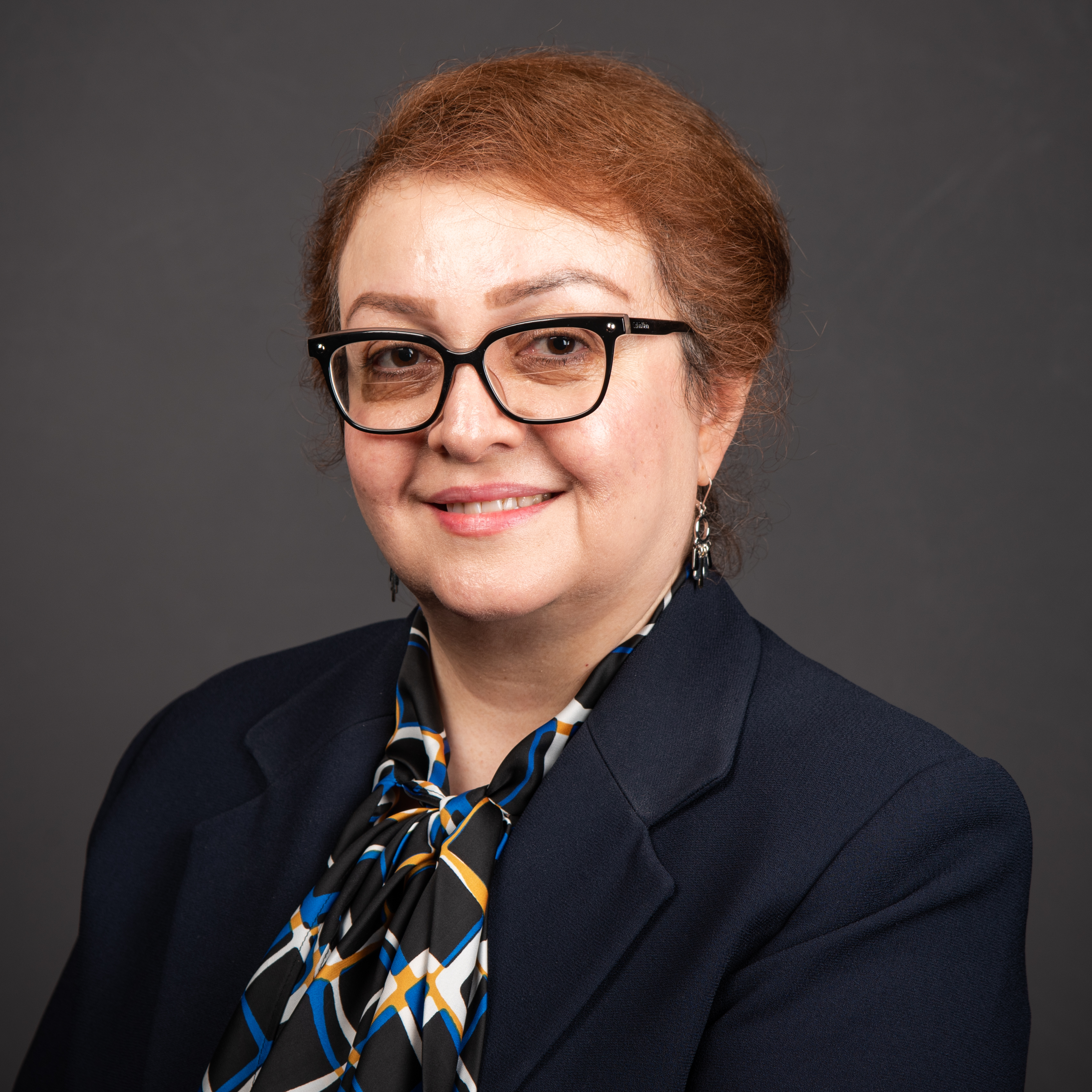
Dr. Anahita Izadyar, associate professor of chemistry, addressed the American Chemical Society Southwest Regional Meeting in Austin, Texas. Her presentation, “Biosensor for Glucose Determination Based on a Novel Recombinant Mn Peroxidase (PPMP) from Corn Cross-Linked to a Modified Gold Electrode,” is based on fabrication of a nano composite and sensitive biosensor to measure glucose using an enzyme derived from corn. Izadyar is working toward a commercial biosensor to detect glucose.
McKay is Featured in Professional Journal
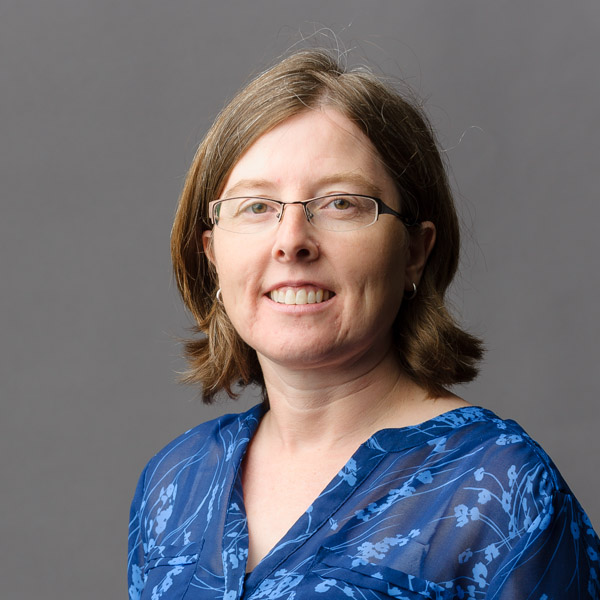
Congratulations to Dr. Tanja McKay, professor of entomology, who is the a featured researcher in the professional journal American Entomologist. McKay recalls how as a child growing up in Nova Scotia she started developing an interest in animals, especially insects. After completing her Ph.D. at Kansas State and a post-doc appointment at Arkansas, McKay joined A-State’s faculty in 2004. The full article is available online.
October
Six from Science Faculty Adopt Project-Based Learning
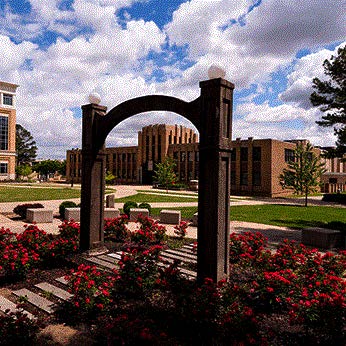
Six faculty members and one graduate student from the College of Sciences and Mathematics attended the Worcester Polytechnic Institute’s (WPI) Project-Based Learning (PBL) Institute. Drs. Hashim Ali, John Artim, Travis Marsico, Lori Neuman-Lee, Lisa Rice and Virginie Rolland, along with graduate student Emily Donahue, participated in the four-day workshop to learn more about implementing PBL in various courses, including developing an action plan for incorporating PBL practices and plans for scaling up PBL. On the last day, they presented their plan to the entire WPI PBL institute.
Biology Faculty Experiment with Humor
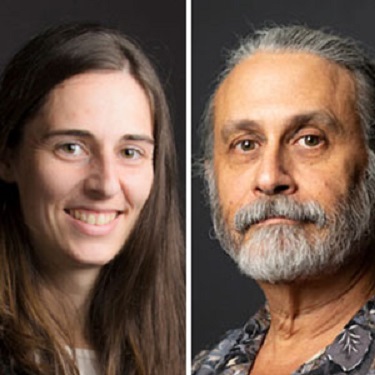
Dr. Virginie Rolland (left), associate professor of quantitative wildlife ecology, and Dr. John Artim (right), lecturer in biology, are stepping out of their usual roles and sharing science in a new way. For the Arkansas Science Festival, they will perform stand-up comedy live on stage, after prepping for the experience through a crash-course. A watch party for “Stand Up. For Science!” is Friday. Details are online
Lorence and Yactayo-Chang Secure Patent
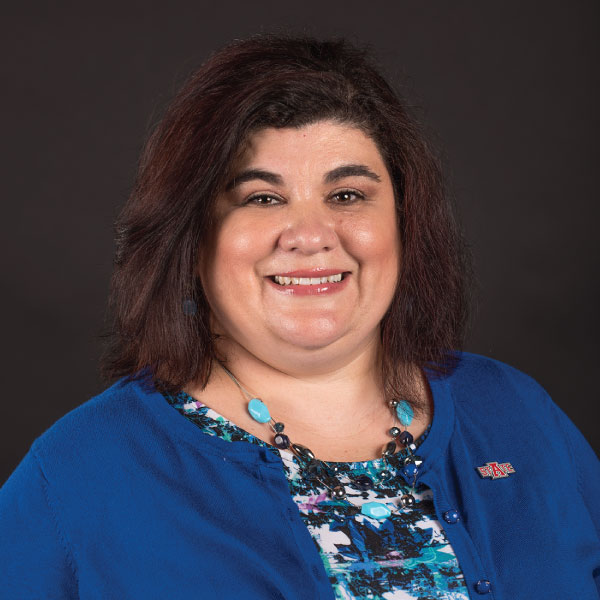
Dr. Argelia Lorence (left), Vaughn Endowed Professor of Metabolic Engineering, and Dr. Jessica Yactayo-Chang, a Ph.D. graduate from her group, have secured a U.S. patent. “Method of improving chloroplast function and increasing seed yield” describes a novel gene from the model plant Arabidopsis involved in vitamin C formation. When an additional copy of this gene is introduced, it leads to plants with improved photosynthesis, more resiliency to stresses, and higher seed yield.
Marsico and Bellis Study Traveling Seeds
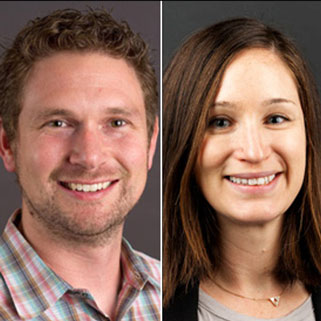
Dr. Travis D. Marsico (left), professor of botany and associate department chair, and Dr. Emily Bellis (right), assistant professor of bioinformatics, have been awarded a $94,739 joint venture grant from the USDA Forest Service – Southern Research Station for a follow-up to their recent collaboration. They are expanding their research into the varieties of risky seed species attached to incoming refrigerated shipping containers, and the timing of the arrivals.
September
Alam and Gilmore Publish on Novel Compounds

A paper by Dr. Mohammad A. Alam (left), associate professor of chemistry, and Dr. David Gilmore (right), emeritus professor of microbiology, has been published in RSC Medicinal Chemistry and another is in Molecules. They describe the synthesis of a library of novel compounds as potent antimicrobial agents. These compounds are potent growth inhibitors of MRSA and vancomycin resistant enterococci (VRE), two of the more worrisome of the antibiotic-resistant bacteria. Alam also authored a paper in Royal Society Open Science.
Shields Joins Faculty in Microbiology
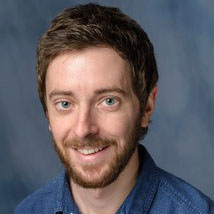
Welcome to new faculty member Dr. Robert Shields, assistant professor of microbiology. After completing his Ph.D. in microbiology at Newcastle University in the United Kingdom, he spent seven years at the University of Florida on a postdoc and then research faculty. One of his primary interests is employing functional genomics techniques to understand the physiology of the oral pathogen Streptococcus mutans. He also enjoys bicycling and soccer.
Lorence to Present in Project Scope Series

Dr. Argelia Lorence, professor of metabolic engineering, will make an online presentation Sept. 15 in the Project Scope series produced by the Arkansas Research Alliance (ARA). Lorence, an ARA Academy member, will discuss her research into stress on rice production resulting from high night air temperatures. She and her colleagues are collecting data and developing solutions. While the series is open to everyone, registration is required.
August
Medina-Bolivar and Students Receive Awards

Dr. Fabricio Medina-Bolivar, professor of plant metabolic engineering, gave an invited keynote address on “Natural Prenylated Resveratrol Analogs: Bioproduction and Biological Activities” at the American Council for Medicinally Active Plants (ACMAP) annual conference. Six members of his research team also made presentations. Graduate students Rokib Hasan and Sepideh Mohammadhosseinpour won first place for their oral and poster presentations, respectively, and undergraduate student Izzeldin Ahmed received second place for his poster presentation.
Alam is PI for Major Research Instrumentation Grant from NSF

Dr. Mohammad A. Alam, associate professor of chemistry, and research colleagues have been awarded a National Science Foundation Major Research Instrumentation (MRI) grant of $345,935 to purchase 400 MHz nuclear magnetic resonance equipment. This state-of-the-art equipment will increase the capabilities of several research groups related to organic chemistry, medicinal chemistry, natural product chemistry, and material science. The grant’s project personnel include Alam, principal investigator, and co-principal investigators: Dr. Fabricio Medina-Bolivar, professor of plant metabolic engineering, Dr. Hashim Ali, professor of chemistry, Dr. John Hershberger, associate professor of chemistry, Dr. Allyn Ontko, associate professor of chemistry, and Dr. Zahid Hossain, associate professor of civil engineering. Alam also is co-PI of another MRI grant to acquire a single crystal X-diffractometer at the University of Memphis.
Neuman-Lee Co-Authors Two Articles
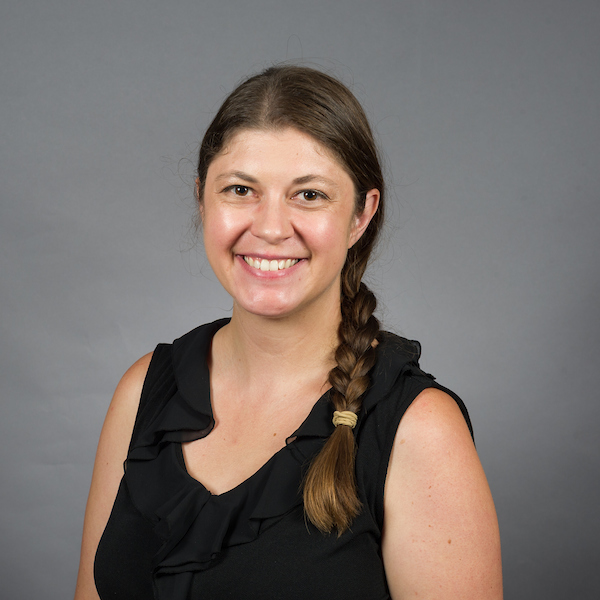
Two collaborative articles co-authored by Dr. Lori A. Neuman-Lee, assistant professor of physiology, have been published. The article in General and Comparative Endocrinology provides evidence that hair samples from polar bears can be collected non-invasively to monitor reproductive cycles, critical for assessing population change due to climate change. In Plos One, the researchers found that increased levels of stress among fishers, a threatened carnivore in California, were correlated with lower survival rates.
July
Izadyar and Team Fabricate Glucose Sensor

Dr. Anahita Izadyar, associate professor of chemistry, is lead author of an article published in the Journal of Electroanalytical Chemistry. Co-authors are Dr. Elizabeth E. Hood, Lipscomb Distinguished Professor, Dr. Ilwoo Seok, associate professor of mechanical engineering, and undergraduate students My Ni Van and Kayleigh Amber Rodriguez. In the article, they describe the fabrication of a glucose sensor. Funding was provided by Arkansas Biosciences Institute.
Zhou Co-Authors New Analysis Method and App

Congratulations to Dr. Hong Zhou, professor of statistics, co-author of an article published in Communications in Statistics – Simulation and Computation. The authors proposed a new sieve method for dividing a family of null hypotheses into subfamilies, and developed a web application to implement the method. The approach is applicable in clinical trials, and will be of special interest to statistical researchers and data scientists.
Alam and Gilmore Research Antimicrobials

A paper by Dr. Mohammad A. Alam (left), associate professor of chemistry, and Dr. David Gilmore (right), emeritus professor of microbiology, was published in ChemMedChem. In their continuing research, they describe the synthesis of 30 chimeric compounds as potent antimicrobial agents. These compounds are the hybrid structure of nootkatone, an approved tick and insect repellent from grapefruit, and thiazole, a privileged scaffold in drug discovery. The article is online.
June
Grippo Concludes Science Career at A-State
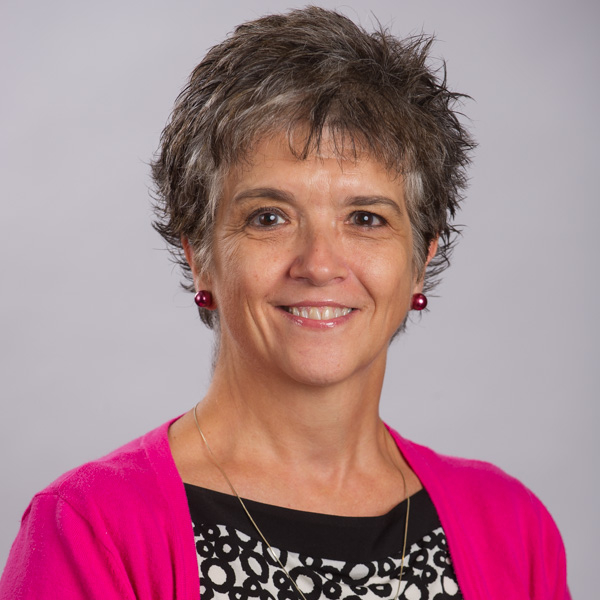
Dr. Anne Grippo, professor of biological sciences and associate dean, Sciences and Mathematics, was recognized during Convocation of Scholars. Grippo, who joined the faculty in 1995, and her husband, Richard, are retiring to St. Croix. She earned her Ph.D. in medicinal chemistry at North Carolina. In addition to ongoing research, she also was very involved in advancing STEM education through initiatives to improve teacher preparation.
Izadyar Presents Research in Amsterdam

Dr. Anahita Izadyar, associate professor of chemistry, presented at the International Conference on Applied Chemistry in Amsterdam. Her topic was "Amperometric Biosensor for Glucose Determination Based on a Novel Recombinant Mn Peroxidase from Corn Cross-Linked to a Gold Electrode.” The conference provides an interdisciplinary platform for researchers, practitioners and educators to cover recent innovations and trends, as well as practical challenges and solutions in applied chemistry.
Gilmore Retires after 29 Years of Service

Congratulations to Dr. David Gilmore, professor of microbiology, who is wrapping up a 29-year teaching and research career at A-State. Gilmore has been directing the environmental microbiology lab, which deals with microbial physiology. In addition to teaching microbiology, genetics and virology, his recent research interests include work on the mechanism of action of new antibiotics. He earned his Ph.D. at Connecticut.
May
Dolan and Harris Working with NASA Students
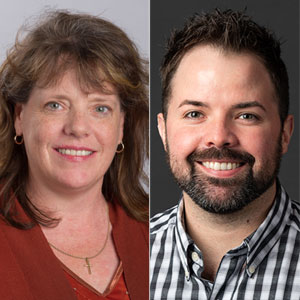
Congratulations to Dr. Maureen Dolan (left), associate professor of molecular biology, and Shea Harris (right), Arkansas Biosciences Institute outreach director, who are working with a team of A-State students preparing an experiment to be conducted on the International Space Station. NASA published an article recently about the five university teams selected in a competitive process to prepare experiments through the Student Payload Opportunity with Citizen Science (SPOCS) program.
Fluker Lab continues research in the Ouachitas

Dr. Brook Fluker, associate professor of aquatic ecology, and Brittany McCall, environmental sciences PhD candidate, recently co-authored an article in Aquatic Conservation: Marine and Freshwater Ecosystems. The paper describes genetic variation and conservation implications for the paleback darter, a rare fish found only in the Ouachita Highlands of Arkansas. Fluker and McCall were also recently awarded a $92,065 grant from the Arkansas Game and Fish Commission to continue studies of rare fishes in the Ouachita Highlands.
Izadyar’s Grant Proposal to USDA is Approved

Dr. Anahita Izadyar, associate professor of chemistry, has received a U.S. Department of Agriculture – National Institute of Food and Agriculture grant totaling $149,318. The project is titled “Development of a Nano-Biosensor to Detect Glucose for Diabetics using Recombinant Manganese Peroxidase from Corn Grain.” She will be principal investigator (PI) and Dr. Elizabeth Hood, Lipscomb Distinguished Professor, will be co-PI.
Alam and Gilmore Publish in European Journal

Dr. Mohammad A. Alam (left) and Dr. David Gilmore (right) published a paper in the European Journal of Medicinal Chemistry. They describe the synthesis of 80 pyrazole compounds as potent antimicrobial agents. Several of these compounds are potent growth inhibitors of MRSA and vancomycin-resistant enterococci (VRE), two of the more worrisome of the antibiotic-resistant bacteria. The compounds appear non-toxic in mice, indicating that they have potential to become new antibiotics.
April
Marsico is First Winner of Chancellor’s Medal
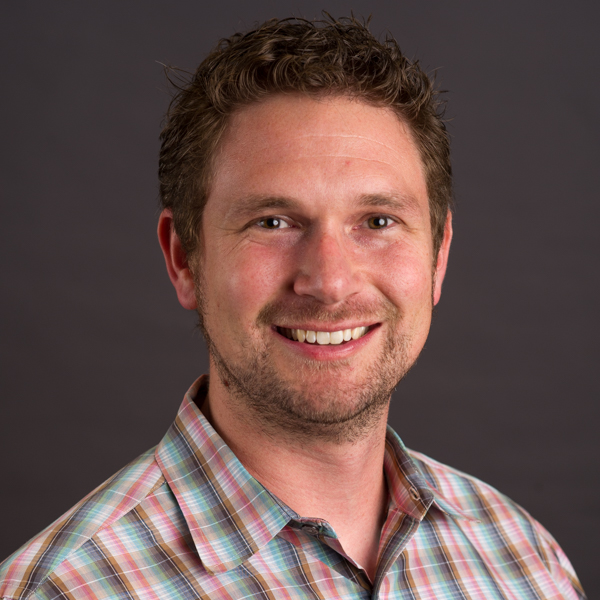
The inaugural recipient of the Chancellor’s Medal for Research and Creative Activities is Dr. Travis Marsico, professor of botany and associate department chair. This is now the highest honor that A-State faculty may receive. Nominators noted Marsico was extraordinarily productive with six peer-reviewed manuscripts and research presentations at four national and international conferences, while serving as a principal investigator for five external research grants. The other finalist was Dr. Beth Hood, Lipscomb Distinguished Professor, in agriculture.
Two Receive Excellence in Diversity Award
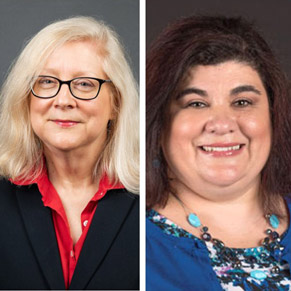
Two faculty members received the Excellence in Diversity Award during the annual Convocation of Scholars recognition program. Dr. Patricia Robertson Johnston (left), interim associate dean of the Neil Griffin College of Business and chair of the Department of Economics and Finance, and Dr. Argelia Lorence (right), professor of metabolic engineering and holder of the James and Wanda Lee Vaughn Professorship, are the recipients. Details are online.
Medina-Bolivar Named Research Alliance Fellow

Congratulations to Dr. Fabricio Medina-Bolivar, professor of plant metabolic engineering, who has been appointed by the Arkansas Research Alliance (ARA) as one of six new ARA Fellows. An A-State faculty member since 2005, he was nominated by Chancellor Kelly Damphousse. The Fellows program, launched in 2014, recognizes research leaders who are currently working in Arkansas at one of the state’s research campuses. Each Fellow receives a $75,000 grant to support their work. Details are online.
Hershberger Selected for AASCU Program

Dr. John Hershberger, associate professor of chemistry, is among those selected nationally to participate in the Emerging Leaders Program (ELP) conducted by the American Association of State Colleges and Universities, based in Washington, D.C. Program participants will become more familiar with an array of pertinent topics in higher education, and will assess and develop their leadership qualities. Program details are online.
Alam’s Group Studies Cancer Inhibitors

A paper by Dr. Mohammad Abrar Alam, associate professor of chemistry, and his research group has been published in the New Journal of Chemistry. In their paper, they describe the synthesis of 50 new chimeric thiazole compounds with steroidal drugs and nootkatone, an FDA-approved natural insecticide. Several of these compounds have been found to be selective growth inhibitors of melanoma and renal cancer cell lines.
March
Dolan is Panelist for Business Program
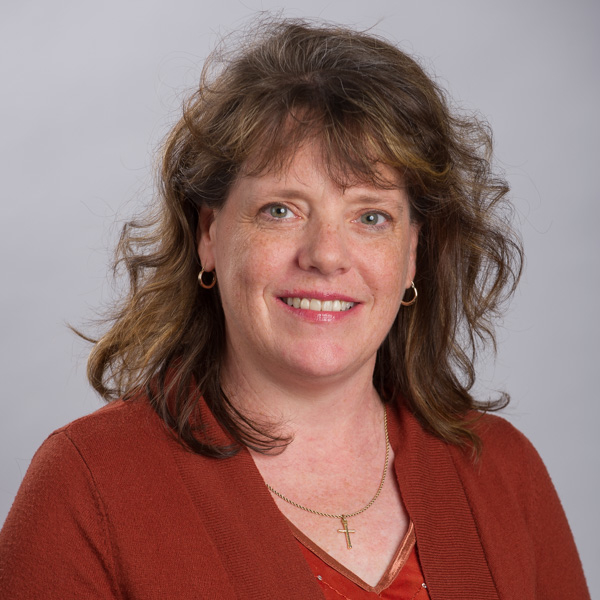
Dr. Maureen Dolan, associate professor of molecular biology, was a panelist for the AccelHERate program conducted Monday by the Small Business and Technology Development Center on International Women’s Day. Panelists discussed management and growth strategies, key skills for entrepreneurial success, and advice on startups. Dolan also is co-founder and vice president of Nature West, a biotech company that makes use of the chemical diversity of plants as “factories” for producing beneficial compounds.
Boves Discusses Cold’s Effects on Animals
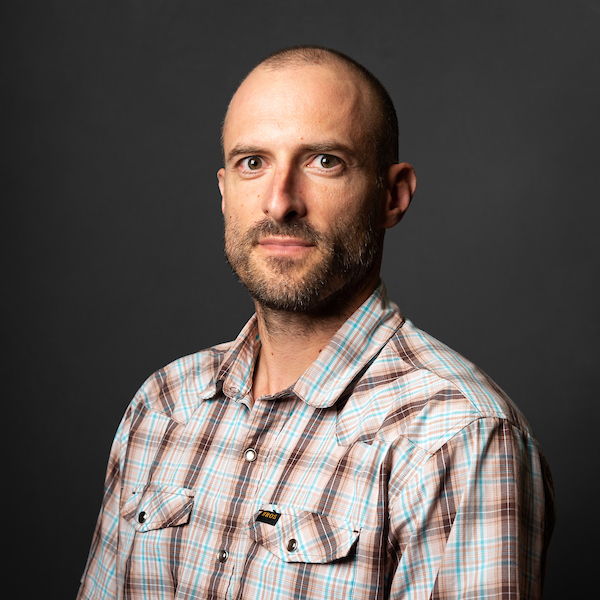
Northeast Arkansas was one of the regions of the country that experienced record harsh winter weather conditions in February. Dr. Than Boves, associate professor of wildlife ecology, was interviewed by a local television station last week regarding the extreme weather’s likely impact on wildlife. Boves noted several straight days of below-freezing temperatures left some animals, like birds, struggling to meet basic needs. The interview is online.
February
Alam Lab receives Kays Foundation Grant

Dr. Mohammad Alam (left), associate professor of chemistry, and Dr. David Gilmore (right), professor of microbiology, have received a $13,966 grant from the Kays Foundation. They will continue their research on potential antibiotics synthesized in their lab. The award will fund students, equipment and supplies needed to investigate how these novel compounds work against the pathogenic bacteria Staphylococcus aureus and Acinetobacter baumannii, which are leading causes of antibiotic resistant infections.
Sikkel and Team to Study COVID’s Impact
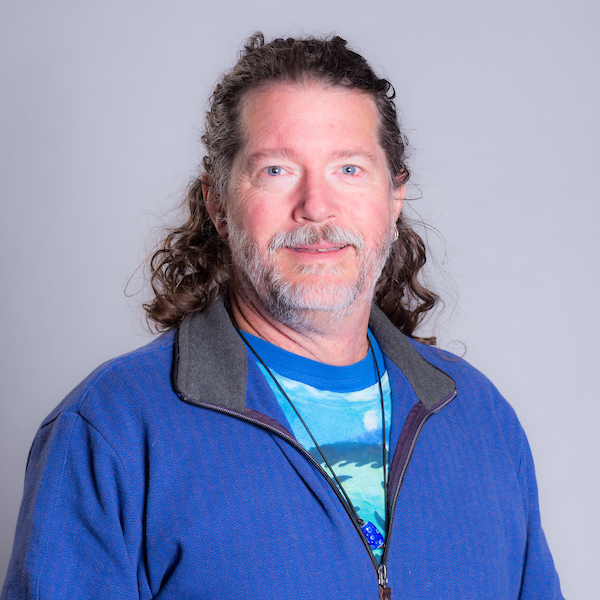
Dr. Paul Sikkel, associate professor of aquatic biology, and his research team received a National Geographic Society grant to study COVID-19’s effects on marine protected areas (MPAs) in the Philippines. Coastal communities there rely heavily on ecotourism, now virtually non-existent during the pandemic. Many locals, deprived of tourism-related livelihood, have resorted to poaching in some MPAs. Sikkel’s team includes his graduate student, Mary Shodipo, and two Philippine scientists.
McKay and Starkus are Article Co-Authors

Dr. Tanja McKay (right), professor of entomology and director, environmental sciences program, and Laura A. Starkus, former research associate in McKay’s lab, and others are co-authors of an article published in Frontiers in Sustainable Food Systems. The article is titled “Long-Lasting Insecticide-Incorporated Netting and Interception Traps at Pilot-Scale Warehouses and Commercial Facilities Prevents Infestation by Stored Product Beetles.” It is available online.
Kays Foundation Approves Gustafson Proposal

A grant proposal to the Kays Foundation from Dr. Kyle Gustafson, assistant professor of biology and environmental health, has been approved. His department will receive $18,949 to purchase 12 Olympus CX-23 microscopes, which will enhance teaching infrastructure in biological sciences courses. The compound microscopes will allow faculty to better educate students in microscopy, from introductory classes to graduate-level classes.
January
McKay Working on Pest Management Grant

Dr. Tanja McKay, professor of entomology, and director of the environmental sciences and molecular biosciences programs, is collaborating with colleagues at Kansas State, Nebraska and the U.S. Department of Agriculture on a three-year, $324,963 grant aimed at crop protection and pest management. With cooperation from rice mills, they are studying new technology for the rice milling industry, using insecticide netting around storage facilities to control for damaging insects.
Rolland and Harrod Study Freshman Attitudes
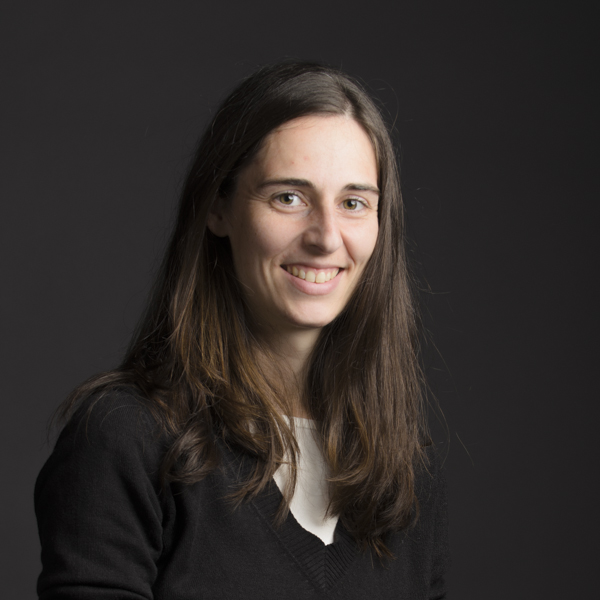
Dr. Virginie Rolland, associate professor for quantitative wildlife ecology, is co-author, along with her former Ph.D. student, Dr. Sara Harrod, of an article in BioScience. They wrote about their findings regarding knowledge and attitudes toward climate change among first-semester college freshmen. They were assisted by Dr. Sarah Kendig, associate professor of sociology. Their paper includes data on students from 19 universities, including A-State.
Marsico Advocates for Digitized Collections

The American Journal of Botany has published research by Dr. Travis Marsico, professor of botany and curator of the STAR Herbarium, and a team of collaborators. In the article, they show the importance of all sizes of herbaria (plant natural history specimen collections) to the understanding of plant species distribution in space and time. Diana Soteropoulos, one of Marsico's Ph.D. students, is among the co-authors of the article.





